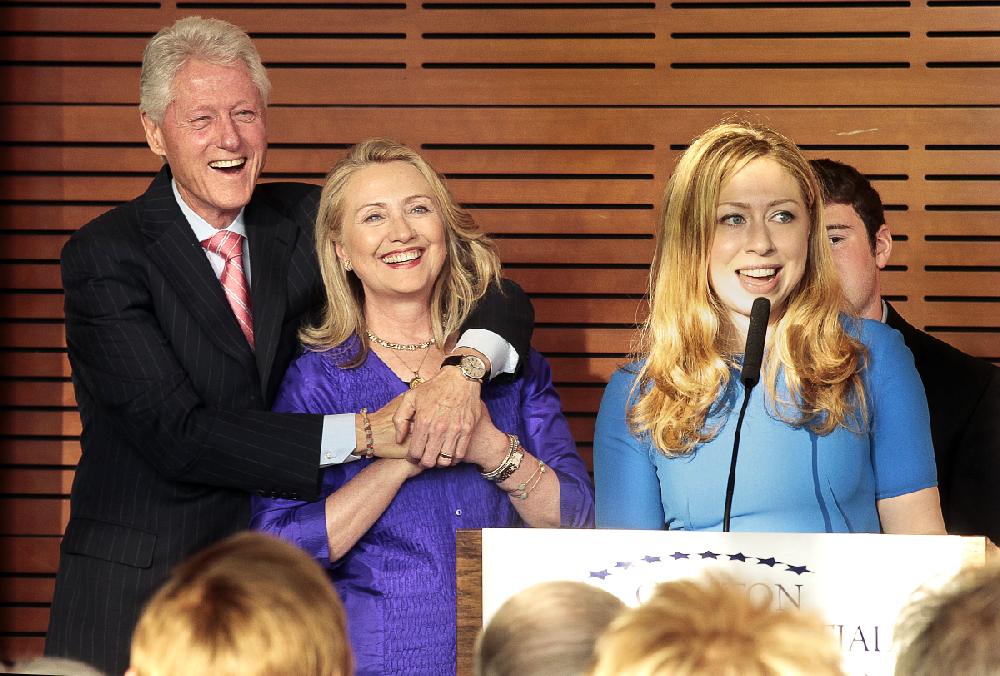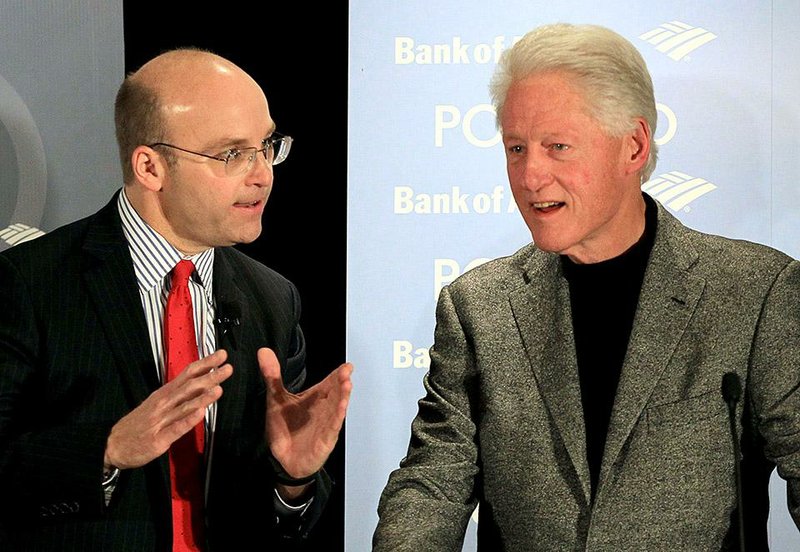Vernon Jordan, the Atlanta-born civil-rights activist and longtime political adviser and friend of Bill Clinton, recalled on Saturday one of the first times European politicians met the future president.

Clintons
It was 1991, and Jordan had traveled with Clinton to the Bilderberg conference in Germany, an exclusive annual event for political leaders and businessmen. Clinton enthusiastically introduced himself to attendees, one by one, asking for their names, jobs and other information.
They didn't know who they were shaking hands with, or where Clinton had come from, Jordan said.
"The Europeans came to me and said, 'Who is this Clinton guy and where is Arkansas?' And I would say, 'That's the next president of the United States.' And they would say, 'Jordan, you been drinking? You been smoking?'
"And I said, 'Mark my words.'"
Jordan was among former advisers and staff members of the Clinton administration who shared personal stories about Clinton and discussed his presidency Saturday afternoon at the Marriott Hotel in downtown Little Rock. The gathering was hosted by Politico editor Mike Allen as part of the news group's Playbook Cocktails series and among events marking the Clinton Presidential Center's 10th anniversary.
Also participating in the discussion were Thomas F. "Mack" McLarty, Clinton's former chief of staff; retired U.S. Army Gen. Wesley Clark; Clinton speechwriters Don Baer and Bruce Reed; Clinton adviser Paul Begala; former Democratic National Committee spokesman Karen Finney; and Clinton's former Assistant to the President on Economic Policy Gene Sperling.
Subjects encompassed Clinton's domestic policies, such as changes to the U.S. welfare system, and foreign ones like the armed conflicts in the Balkans, as well as Clinton himself -- his work habits, values and political ideology.
"I think his deepest quality is empathy, and his critics never got that. They mocked him when he said, 'I feel your pain,'" said Begala, referring to Clinton's response to AIDS activist Bob Rafsky during the 1992 presidential campaign.
Baer and Reed said Clinton's speeches always seemed personal, even when they were written by someone else. His prowess as an orator grew over many late-night writing and editing sessions across the country, including in the hotel where Saturday's discussion took place, they said.
"Watching Bill Clinton put together a speech was a thing of beauty, because you had written something and he'd go to the podium and make it a thousand times better," Baer said. "We struggled to write down the beautiful words he was coming up with. It was like we were speaking to one crowd, and he was speaking to the real crowd."
Baer and Reed did take credit for some of those "beautiful words," at least the ones spoken by a Bill Clinton doll that they bought at the Clinton Museum Store in Little Rock before Saturday's discussion.
"There's nothing more a presidential speechwriter could hope for than a little doll that speaks your words when you press it," said Baer, showing the doll to his former White House colleagues.
The mostly light tone of Saturday's discussion continued when Clinton took the stage to speak. As reporters and other attendees watched for him to enter from the west side of the room, he walked in from the east.
"I thought I'd live up to my reputation for being slick and ease in behind you," he said.
Clinton's tone turned serious as he discussed the challenges of his administration and of current American involvement in overseas conflicts. He said lessons from America's conflicts in Bosnia and Kosovo remain relevant today.
"It's still worthwhile to think about it in the same way and to work even harder on building the capacity of states, not only their ability to defend themselves, but to provide for their own people. And our assistance programs should be designed to work ourselves out of a job so we can have partners and not people who are totally dependent on it," he said.
He also answered a few questions from Allen, one of which was what Clinton has on his "bucket list."
"I'd like to ride a horse across the Gobi desert to the place where people think Genghis Khan is buried," he said.
He'd also like to climb Mount Kilimanjaro in Tanzania.
Metro on 11/16/2014
